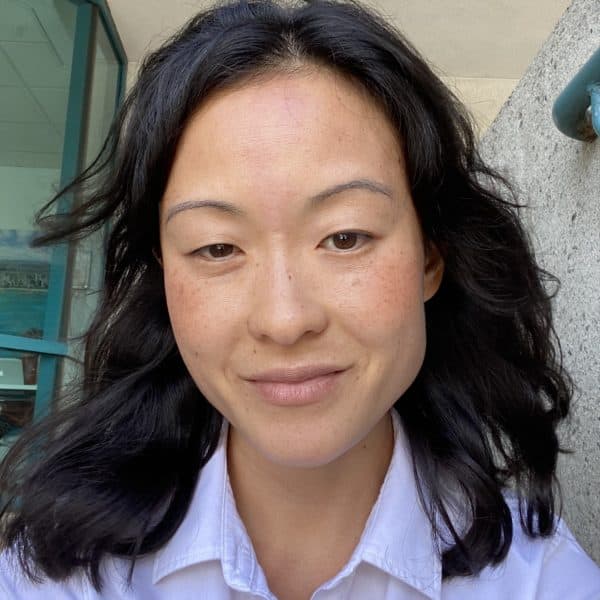Advertisement
The top education issues in Mass. that captured our attention in 2023
Much unfolded in 2023 to affect the education landscape in Massachusetts.
At the K-12 level, learning setbacks related to COVID-19 spurred renewed focus on academic, social and mental health supports.
In higher education, reactions to major rulings from the U.S. Supreme Court around race-based college admissions and student loan forgiveness rippled throughout the state.
Massachusetts saw a significant push from policymakers and education leaders to remove cost barriers to community colleges, and free meals for public schools students became a permanent program.
The past year also was marked by a tense political climate that affected local school committees, as well as university campuses — particularly after the war between Hamas and Israel broke out in Gaza.
Here are some of the key education issues and developments WBUR kept close tabs on this year.
Affirmative action and diversity in college admissions
In June, the U.S. Supreme Court overturned race-based affirmative action in higher education in a 6-3 decision, ruling against policies at Harvard University and the University of North Carolina.
Chief Justice John Roberts’ majority opinion, however, conveyed that colleges could still consider an “applicant’s discussion of how race impacted his or her life.”
Reaction from Massachusetts’ education officials was swift — with many university leaders reaffirming their commitment to diversity goals.
In the wake of that ruling, WBUR’s Max Larkin took a closer look at one selective college’s holistic approach to admissions that helps it attract diverse students. He also profiled a summer college preparatory program for high schoolers that helps students of color from low-income households win seats at the country’s top colleges and universities.
The fight over school admissions criteria seems far from over: legal activists are now setting their sights on highly selective secondary schools, including Boston's three exam schools, where a revised admissions policy to address under-representation of Black and Hispanic students was recently upheld by a federal appeals court.
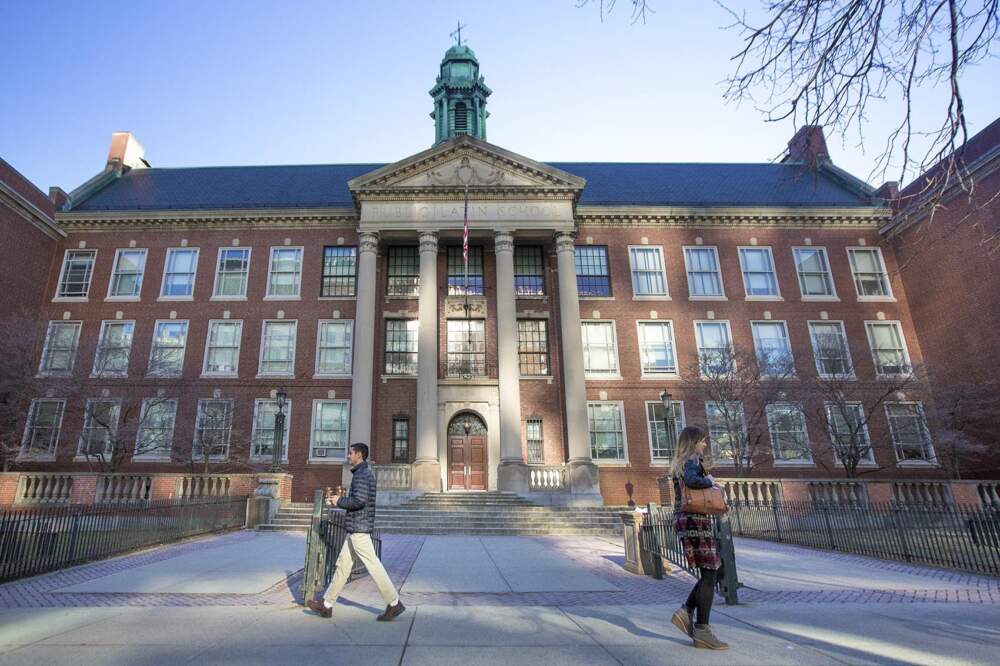
Federal student loan repayments
The U.S. Supreme Court in June also struck down the Biden administration’s $400 billion plan to cancel or reduce student loan debt.
In Massachusetts, more than 800,000 people met income requirements to qualify for relief, so the disappointment over the decision ran deep. Federal student loan interest resumed in September and payments began again in October. As those changes kicked in, WBUR’s The Common podcast brought several voices of people across the region who’ve experienced student loan debt.
In August, the Biden administration would roll out a new student loan repayment plan, known as SAVE, which minimizes interest payments and reduces monthly payments for student loan borrowers.
Language and health needs of new students
A significant increase in the number of migrant families arriving in Massachusetts forced schools to grapple with how best to support these new students.
Many of the new arrivals are struggling with homelessness and navigating the state's overburdened family shelter system. Recently, Massachusetts' education secretary told WBUR’s Carrie Jung that the state offered guidance to public school districts around students affected by trauma, as well as some financial support. Districts were given $104 per student entering schools from within the shelter system.
In Brockton, where nearly half of students speak a language other than English at home, Jung took a look at how the district ramped up parent interpretation and translation services by propping up a new parent language assistance center.
WBUR’s Gabrielle Emanuel reported on school enrollment delays facing the more than 5,000 school-aged children in the state's family shelter system. Among the reasons for the delays were problems verifying or completing children's vaccination records.
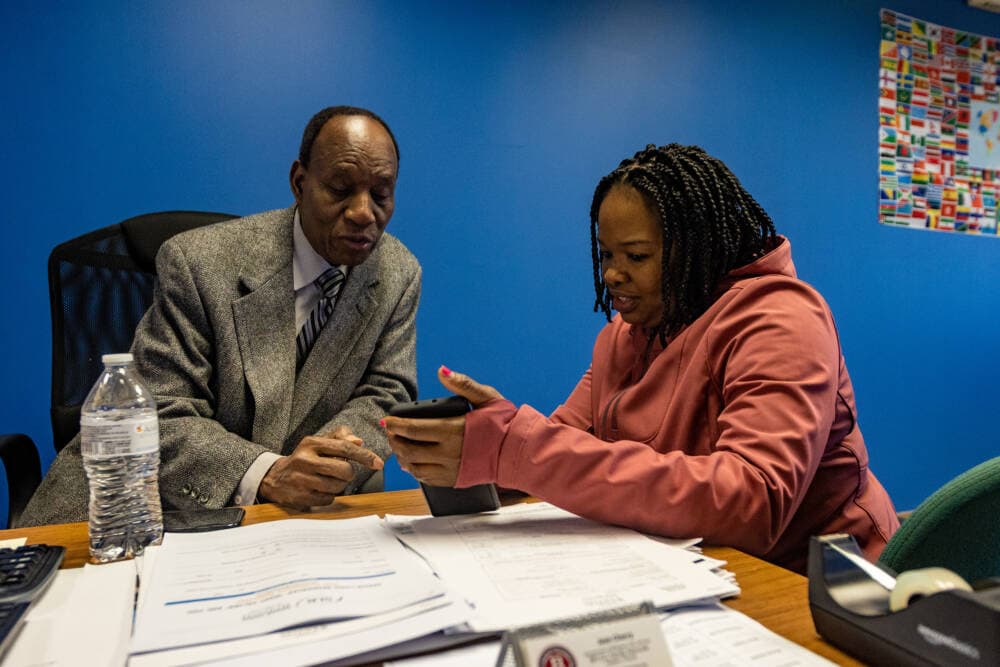
School transportation challenges persist
The reliability of school buses remained an issue for some school districts this year, though Boston Public Schools reported that services had improved from the previous year thanks to a fully-staffed team of drivers.
In Framingham, however, a bus driver shortage limited ridership for many kids, causing families to scramble to find alternative transportation options. Meanwhile, other districts like Beverly experimented with introducing electric school buses.
Teacher vacancies — and efforts to address shortage areas
Teacher shortages and efforts to diversify the teaching force were a major focus in Massachusetts this year.
In April, then-education reporting fellow Samuele Petruccelli spotlighted a teaching pathway program at Lowell High School that aims to get students of diverse backgrounds interested in teaching while still in school.
WBUR's Emily Piper-Vallillo wrote about a partnership between Haverhill schools and Merrimack College to offer paraprofessionals — who often have many years of classroom experience and tend to want to teach in their communities — a way to earn a master's degree in education and obtain teacher licensure amid a shortage of special education teachers.
And Jung reported on how Framingham Public Schools recruited teachers from Brazil this year by petitioning for an H-1B visa — a work authorization for qualified foreign professionals that opens the door to possible permanent residency — to address the need for more bilingual teachers.
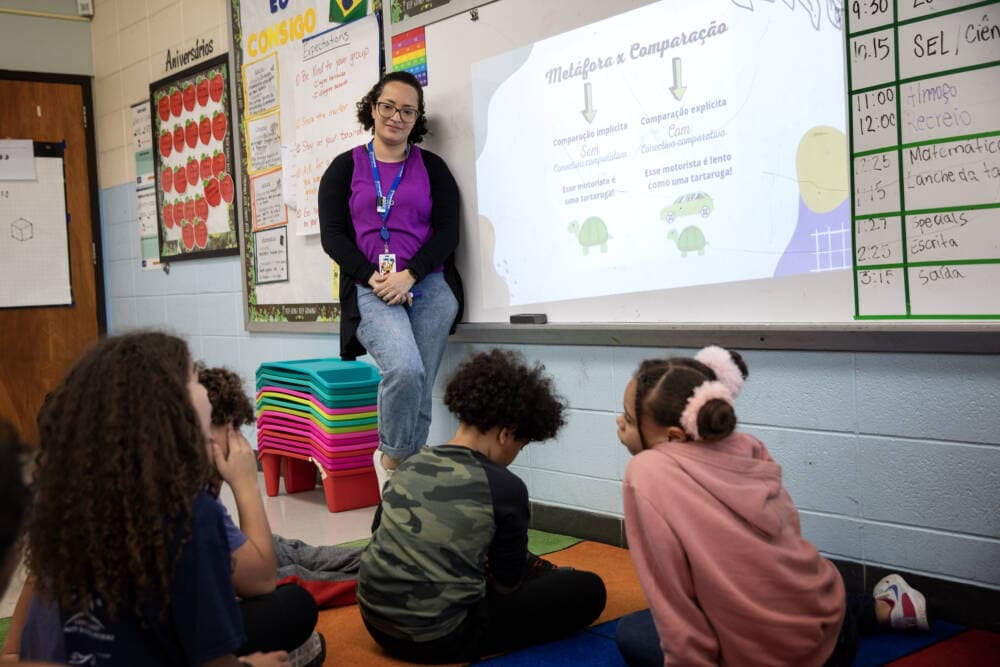
Boston schools' controversial proposed moves
No other announcement of a school relocation generated more pushback this year than Boston Public Schools’ proposal to move the O’Bryant School of Math & Science from its Roxbury campus to a site in West Roxbury about seven miles away. The O'Bryant is one of the city's three exam schools and its most racially diverse.
Boston Mayor Michelle Wu touted the plan as necessary in the long-run to expand the number of seats at Madison Park Technical Vocational High, which currently shares a campus with the O’Bryant, as part of her vision to expand vocational education in more modernized digs.
Other planned grade-level shuffling in Boston generated parent pushback given the disruption to kids’ education and stability of a "home" school — and with the district soon to release a long-term facilities school plan, the early controversy of these proposals could be a sign of what’s yet to come.
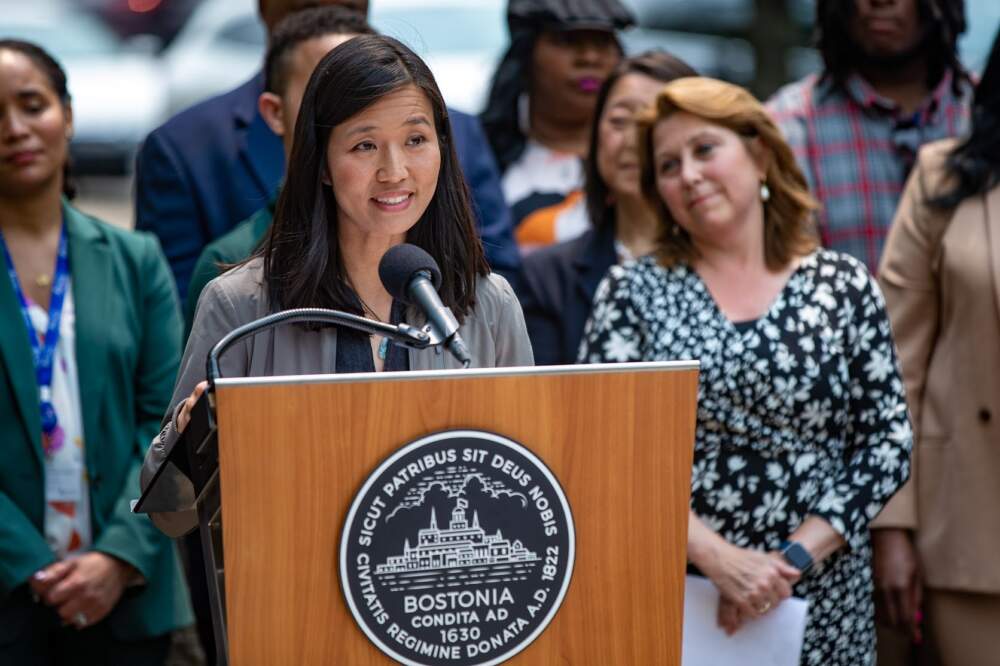
Harvard campus protests and an embattled university president
The controversy swirling around Harvard leadership and its response to the war in Gaza began with criticism over the university president's delayed response to the crisis and a statement signed by several dozen student groups shortly after the Oct. 7 Hamas attack. The statement held the "Israeli regime entirely responsible for all unfolding violence."
Amid claims of incidents of antisemitism and harassment of pro-Palestinian advocates on campus, tensions within the school community kept escalating. A month into the conflict in Gaza, WBUR's Max Larkin took a closer look at the climate on campus and competing ideas around student speech.
Then, Harvard President Claudine Gay appeared at a Dec. 5 congressional hearing that prompted significant backlash against Gay and two other college presidents. A New York Republican lawmaker asked whether pro-Palestinian chants some insist are antisemitic would violate the university's conduct of bullying or harassment. Gay equivocated. Harvard's governing board later stood by her.
Now, Gay, the school's first Black president and second woman to lead Harvard, finds herself again in hot water in a controversy stemming from plagiarism allegations surfaced by conservative outlets — including lifting passages without attribution in her 1997 PhD dissertation and not properly citing others' phrasing — though the university affirmed she committed no research misconduct.
Expansion of college access and lowering of costs
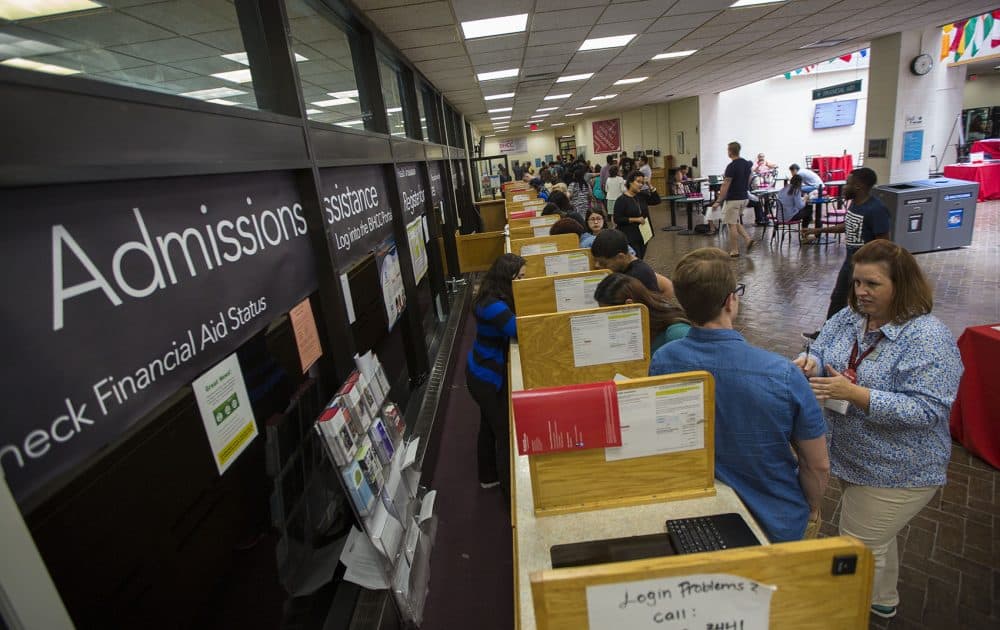
Massachusetts made some moves this year to expand college access for residents.
One of those new programs, MassReconnect, allows Massachusetts' residents 25 and older to work toward an associate’s degree tuition-free, including costs for fees, books and supplies. A similar initiative also launched in Boston, making community college at participating institutions free for any city resident regardless of age, income or immigration status.
The state also removed other cost barriers for adult learners, making one option for the high school equivalency test, free. And there’s early signs new initiatives are helping boost college enrollment in Mass., where this past year saw the first rise in undergraduate enrollment at the state's public colleges and universities in a decade.
